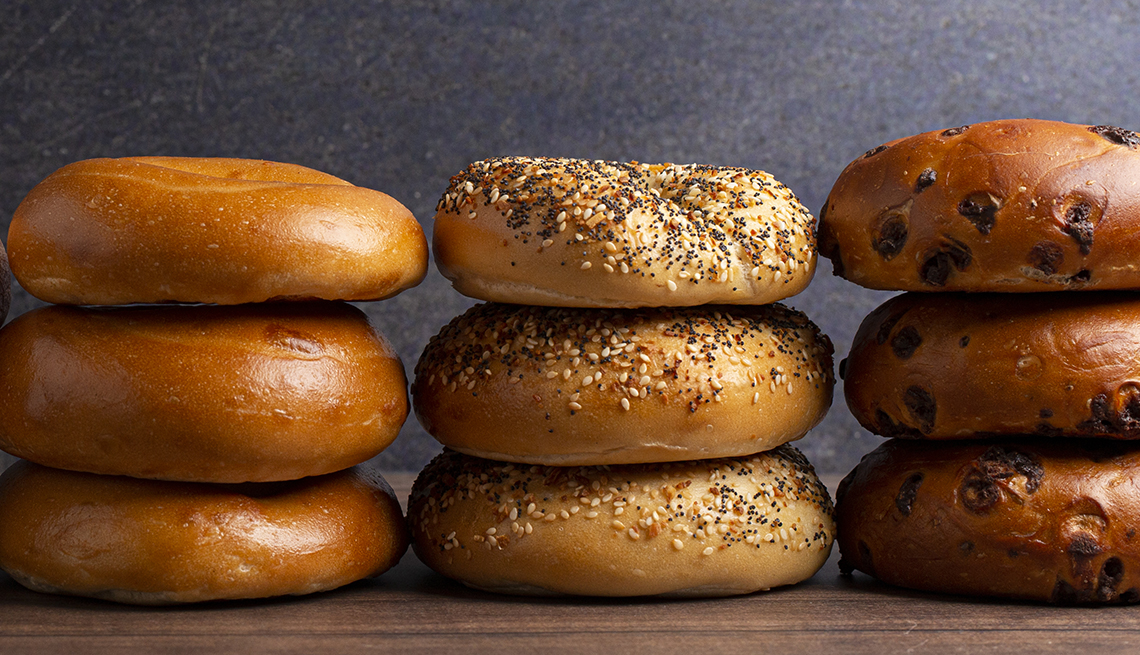
- Select a language for the TTS:
- UK English Female
- UK English Male
- US English Female
- US English Male
- Australian Female
- Australian Male
- Language selected: (auto detect) - EN
Play all audios:
5. FRIED FISH Fish like salmon, tuna and shrimp are high in heart-healthy omega-3 fatty acids, low in saturated fat and high in protein. However, when you dredge your fish in flour and deep
fry it in hot oil. you’re adding calories and unhealthy fat, which can contribute to unwanted weight gain TIP: Rather than fry fish, bake, broil or grill it to get the numerous health
benefits. 6. PLANT-BASED DAIRY FOODS (WITH ADDED SUGAR) Avoiding dairy is fine, especially if you’re lactose-intolerant, but be cautious of plant-based substitutes like cashew, almond or
coconut yogurt, ice cream and milk. “My patients are trying to make healthy swaps. They think they’re doing the right thing, but they’re just trading one evil for another,” Richter says.
Because plant-based foods don’t have the same texture and flavor as dairy, manufacturers add sugar to compensate, contributing to fat gain. TIP: Look for the unsweetened versions of
plant-based dairy products to cut down on added sugar. 7. SODAS, ALCOHOL AND OTHER SUGARY DRINKS It might be easy to connect the contents of your plate with the higher numbers on your scale,
but what’s in your glass also factors into your weight-loss struggles. Regular sodas and other sugary beverages are one of the biggest culprits when it comes to excess calorie intake. When
you order your Starbucks coffee with extra cream and lots of sugar, “now it’s basically like a chocolate bar,” says Richter. Even diet soft drinks are linked to weight gain, possibly by
making you crave more sugary, high-calorie foods. Some drinks hide under the guise of healthfulness, like kombucha. It seems like a healthy beverage option — after all, it’s made with
fermented tea. In reality, “it has a ton of added sugar in it,” says Richter. Many fruit and vegetable juice drinks also contain lots of sugar. If you are watching your weight, eat an orange
or an apple instead of drinking orange or apple juice. Alcoholic drinks are double offenders, especially mixed drinks. A piña colada packs a whopping 245 calories and 31 grams of sugar.
Alcohol also promotes inflammation, which contributes to weight gain. TIP: Stick to water, unsweetened tea or black coffee. For some extra flavor, throw a lemon, mint or berries into your
drink. 8. NUTS These foods constitute a whole different type of fat — the mono- and polyunsaturated kinds that are rich in antioxidants and have anti-inflammatory properties. They’re good
for your health and therefore worthy of eating. But because they’re high in calories per ounce, you’ll want to eat these healthy fats in moderation to avoid weight gain, says Spiegel.
TIPS: Stick to small servings, like one tablespoon of peanut butter or a handful of nuts—not the whole jar. 9. OLIVE OIL While olive oil is a great choice for cooking and dressings, a little
goes a long way—one tablespoon has just over 100 calories. “Since it has plenty of benefits, it’s still an important part of our everyday diet - but best to use it as a drizzle rather than
a glug if you’re focused on weight,” says Rachel Gargano, chief registered dietitian at Live it Up and a nutritionist with board certifications in sports dietetics and breastfeeding. TIP:
Use a measuring spoon instead of eyeballing your pour to keep portions in check. 10. SMOOTHIES Smoothies can be a great way to pack in nutrients, but they’re also an easy place to rack up
extra calories. Too much nut butter, chia or flax seeds, added sugar, or a high-fat base can turn a healthy smoothie into a calorie bomb. “The body doesn’t recognize liquid calories the
same as eating solid foods, it can be easier to drink more calories than what the body needs,” says Gargano TIP: Use a protein-rich base like Greek yogurt or unsweetened milk and balance
your smoothie with fiber-rich ingredients like berries or spinach to help keep you full. 11. SALADS Salads can be loaded with fiber, antioxidants, vitamins and minerals—but what you put on
them matters. Piling on cheese, bacon bits, croutons or creamy dressings can pack more calories than you expect. TIP: Keep your portions in check when using calorie-dense toppings and opt
for a light vinaigrette instead of creamy dressings. For an even bigger nutritional boost, go for a variety of colorful veggies and lean proteins to keep you full. 12. LOW CALORIE
ULTRA-PROCESSED FOOD While it may be obvious that packaged cookies, chips, and fast food should be avoided, frozen meals—even the ones labeled “low calorie”—fall into the ultra-processed
category too. Most ultra-processed foods are loaded with added sugars, unhealthy fats, and sodium, but there’s another issue: how the body processes them. “The processing makes it easier for
our bodies to absorb more calories than from whole foods, and they require fewer calories to digest, which makes overeating more likely," she says. Studies show people who eat more
ultra-processed foods tend to eat much more calories per day than those stick to a diet richer than whole foods. TIP: Instead of frozen meals, try meal prepping and keep ready-made healthy
meals in your freezer. And when it comes to snacks on-the-go reach for fruit or plain yogurt instead of chips. FOCUS ON THE BIG PICTURE Eating a high-fat or sugary food once in a while
isn’t going to lead to weight gain. It’s more about the quality of your diet as a whole, says Dr. Goldstein. Fill your plate with nutrient-dense foods like lean proteins, nonstarchy
vegetables and fiber-rich fruits to help reduce calorie intake without feeling deprived “We don’t want people to restrict, thinking, _I can’t have this_,” he adds. “You can have almost
anything you want, in moderation.” BOTTOM LINE: Eating more of the foods that won’t make you gain weight, like nonstarchy vegetables and berries, will leave less room for foods higher in
calories, saturated fat and added sugar. Remember that your diet should be not only healthy, but also sustainable. “That’s the real key,” says Goldstein. “Anyone can lose weight. The
question is, can anyone keep weight off?"
.jpg)






